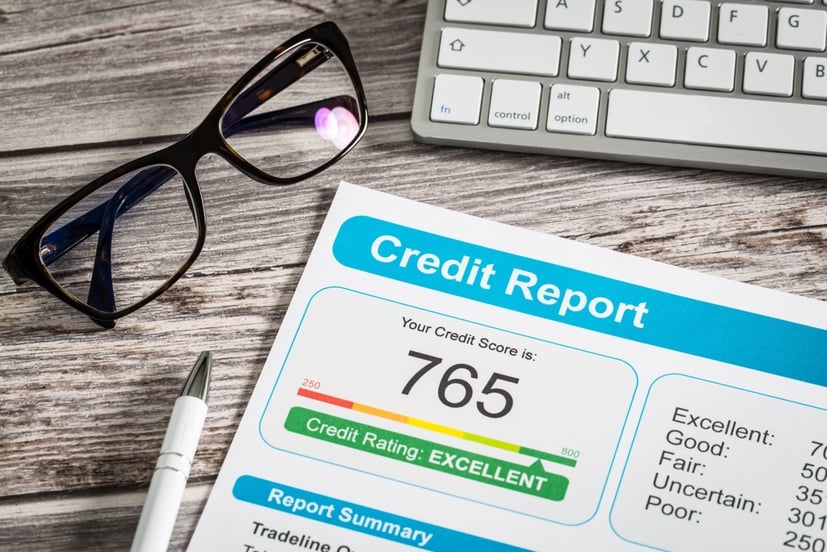
New College Grads: Avoid these 5 Financial Mistakes
You finally graduated college – congrats! This is a huge accomplishment but also just the first step in adulthood. The ‘real world’ can often throw you more curveballs than you expect. We see these common new grad financial mistakes all the time. Colleges may not teach personal finance courses, and it’s easy to make a mistake with your money. Find out what the five most common financial errors are so you can avoid them!
Mistake #1: You are living beyond your means.
Life adds up. Between rent, cell phone payments, food, and more – your expenses can quickly eat away at your cash. One of the biggest mistakes a new grad can make is to live beyond their means. This basically means that you spend more than you earn.
The best way to avoid this mistake is to create a monthly budget. This budget will track your income and expenses so that you can see exactly where your money is going. If your budget shows leftover money after all expenses are paid, you are in good shape. If it shows you are spending more than you earn, you should immediately find ways to cut back on your expenses.
Get the beginner’s guide to creating budget.
Mistake #2: You are ignoring investment opportunities.

It may seem overwhelming to consider events like retirement when you just graduated college. But investing for the future should start as soon as you are able. Investing smaller amounts for a longer period of time will net you more money than if you waited. This is due to compound interest.
Here’s an example using the SEC’s free compound interest calculator.
Initial investment – $500
Monthly contribution – $25
Years – 40
Estimated returns compounded annually– 7%
In 40 years, you’ll have $67,377.76
Initial investment – $1,000
Monthly contribution – $25
Years – 30
Estimated returns compounded annually – 7%
In 30 years, you’ll have $35,950.49.
Even though you put more money in upfront, waiting 10 years to start investing cost you $31,427.27. This shows that starting now rather than later is beneficial.
A few simple ways to start investing? Use your employer’s 401K program. Open a Roth IRA. Try your hand at the stock market using an app like Acorns. You don’t have to contribute much out of your monthly budget, but your future self will thank you!
Mistake #3: You aren’t planning for emergencies.

How would you pay for a $400 emergency? If your answer isn’t pulling the money from a dedicated savings account – that’s a mistake. Life will always throw you financial curveballs. The trick is to plan for them in advance, so they don’t make too large an impact.
The best way to prepare for emergencies is to start a dedicated emergency fund now. This should be your first priority upon graduation! We recommend having 3-6 months of your living expenses saved for a rainy day.
Get tips for starting an emergency fund here.
Mistake #4: You aren’t using credit to your advantage.

Like it or not, your credit score affects your life. If you ever need to take out a loan, like for a car or home – your credit score is hugely important. If you use credit to your advantage, you can qualify for more loans at lower interest rates. If you use it incorrectly, it can cost you – literally.
If you already have a credit card, here are a few tips on how to use it correctly to increase your credit score.
- Make payments on-time. This one’s simple. Late payments are recorded to the credit bureaus and come with annoying fees.
- Keep your credit utilization ratio under 30%. You will get the best credit score results when you only use less than 30% of your total credit limit at any given time. If your limit is $1,000, never keep more than a $300 balance on your card at any given time.
- Keep old credit card accounts open, even if you aren’t using them. They will help raise your overall credit limit and show a longer credit history to lenders.
Another important aspect of credit is your credit report. You can get your report for free at annualcreditreport.com. These reports are what generate your overall credit score. You need to monitor your report a few times a year to ensure the information is accurate. Read our guide to understanding your credit report here.
Mistake #5: You aren’t planning for your student loan repayment.

Most student loans come with a 6-month grace period after graduation before you have to start repayment. It can be tempting to ignore the upcoming payments, but we encourage you to use those six months to prepare.
Figure out your student loan details. This information includes:
- Total amount owed
- Interest rates
- Monthly expected payment
- Total number of payments
- Lender information
If you have lots of student loans from a variety of lenders, it could be beneficial to consolidate those loans so you only have to remember one payment a month. Try to focus on reducing the interest rate when you consolidate to lower the payment amount rather than extending the repayment period.
If you have federal loans, they have more flexible repayment options than private loans. You can choose a standard plan, where the monthly payments are the same for the full repayment period. But you also can choose a graduated plan, which starts the payments lower and increases them around every two years. These increases are meant to coincide with salary increases. There’s also income-based repayment, where you never pay more than 10-15% of your income on student loans. The payments are recalculated annually based on your current income. Get more information on federal loan repayment options on the Federal Student Aid website.
Plan for your student loan repayment right away so your monthly budget isn’t thrown off track after the grace period ends.
What mistakes did you make after college?
Help other new grads and leave a comment below letting us know what money mistakes you wished you didn’t make!
Get an auto loan built for new college grads.
If you recently graduated and are having trouble getting approved for an auto loan due to little to no credit – we have a solution. Our Credit Boost Auto Loan can help you get access to a car loan with a reduced interest rate while building your credit. Find out more about this specialized loan today.
-2.png?width=300&height=65&name=AFCU-logo-2019-white-sm%20(1)-2.png)